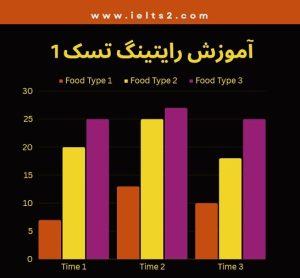نمونه سوالات اسپیکینگ آیلتس درباره پژوهش ها (پارت 1 2 3)
در این بخش بیش از 20 مورد از نمونه سوالات اسپیکینگ آیلتس نمره 9 درباره “موضوع پژوهش ها” را با هم میبینیم. این مجموعه از آخرین سوالات گزارش شده از سنترهای برگزار کننده آیلتس در ایران و خارج از کشور مربوط به پارت 1، 2 و 3 می باشند و شانس تکرار آن ها در آینده بالاست. در ادامه مطلب همچنین نکات گرامری، لغات و دلایل دریافت نمره 9 را به طور مشخص توضیح داده ایم تا راهنمایی برای علاقمندان باشد. 1000 نمونه سوالات اسپیکینگ آیلتس با جواب PDF پارت 1 2 3 پیشنهاد بعدی ما به شما عزیزان است.
نمونه سوالات اسپیکینگ آیلتس درباره موضوع پژوهش ها (پارت 1)
- Do you enjoy doing research?
Absolutely. I find research intellectually stimulating because it allows me to explore topics in depth and discover new perspectives. Whether it’s academic or personal, the process of gathering information, analyzing it, and drawing conclusions is deeply satisfying. I enjoy the sense of accomplishment that comes from uncovering insights and making informed decisions. It also improves my critical thinking skills, which are valuable in both academic and real-life contexts. - Have you ever done any academic research?
Yes, I have. During my university studies, I conducted a research project on the impact of digital media on student productivity. It involved surveys, interviews, and data analysis. I learned how to formulate hypotheses, gather reliable sources, and interpret results. The experience taught me not only technical skills but also patience and persistence, which are essential in any research journey. It was incredibly rewarding and strengthened my analytical abilities. - What kind of topics do you like to research?
I’m particularly interested in topics related to psychology, education, and technology. I enjoy understanding human behavior, how people learn, and how digital tools are changing our lives. These subjects are dynamic and constantly evolving, which makes researching them both challenging and exciting. I like how relevant they are to everyday life, and they often provide practical applications. Exploring such topics helps me stay informed and think critically. - Do you think research is important in everyday life?
Definitely. Even outside of academia, research is crucial. For example, when we buy a new product, plan a trip, or make health decisions, we often research first. It helps us make informed choices and avoid mistakes. Research doesn’t always mean reading scholarly articles—it can simply be comparing reviews or asking questions. This kind of everyday research improves our judgment and makes us more aware, responsible consumers and citizens. - How do you usually conduct your research?
I usually start by defining a clear objective and identifying credible sources. I rely on academic journals, reputable websites, and expert opinions. I take notes, organize the information, and then cross-check facts to ensure accuracy. I also use digital tools like Google Scholar or library databases. If necessary, I might conduct surveys or interviews. I believe that a systematic approach leads to more reliable results and deeper understanding. - Do you prefer doing research alone or in a group?
I enjoy both, but I slightly prefer working alone because I can focus better and manage my own pace. Individual research allows for deep concentration and independence. However, group research can be enriching too, as it brings in diverse perspectives and ideas. Collaboration often leads to more creative solutions. Ideally, a balanced mix of both approaches works best depending on the topic and objective. - What’s the most challenging part of doing research?
The most difficult part for me is filtering through a large volume of information and identifying what’s truly relevant. With so many sources available online, it’s easy to get overwhelmed. Ensuring the credibility of data and avoiding misinformation can be time-consuming. Also, sometimes drawing conclusions from limited or conflicting evidence can be frustrating. However, these challenges are also opportunities to improve my analytical skills. - Do you think children should be taught how to research?
Absolutely. Teaching children how to research helps them develop critical thinking, problem-solving, and information literacy skills. In today’s digital age, it’s essential for kids to learn how to evaluate sources and recognize bias. Early exposure to research techniques also nurtures curiosity and a love for learning. If children are equipped with these skills from a young age, they’ll grow into more independent and informed adults. - How has technology changed the way people do research?
Technology has revolutionized research by making information more accessible than ever before. Online databases, digital libraries, and search engines allow people to access vast amounts of data instantly. Tools like plagiarism checkers, data analysis software, and reference managers have streamlined the entire research process. It’s easier now to collaborate globally, share findings, and stay updated. However, it also requires digital literacy to navigate responsibly. - Do you think research will become more important in the future?
Yes, as the world becomes more complex and data-driven, research will play an increasingly vital role in decision-making across all fields. From tackling climate change to developing medical treatments and understanding social behavior, research is key to progress. The need for innovation and evidence-based policies means that research will be more integrated into everyday work and life. Continuous learning through research will become a fundamental skill.
نمونه سوالات اسپیکینگ آیلتس درباره موضوع پژوهش ها (پارت 2)
Describe a research project you have worked on or would like to work on. You should say:
What the project is about
Why it interests you
How you would conduct the research
And explain what you hope to achieve from it
Band 9 Answer:
One research project I would love to work on is studying the psychological effects of social media on teenagers. With the rapid growth of digital platforms, teens are spending more time online, and I’m curious about how this impacts their mental health, self-esteem, and social relationships. This topic interests me because it’s highly relevant and affects millions of young people worldwide.
If I were to conduct this research, I would adopt a mixed-methods approach. First, I would design a survey to gather quantitative data on usage patterns, emotional responses, and behavioral changes. Then, I’d conduct in-depth interviews with a smaller group of participants to explore their experiences more deeply. I’d also review existing literature and compare my findings with global trends to contextualize the results.
I would collaborate with schools to recruit participants ethically and ensure proper consent is obtained. Maintaining confidentiality and sensitivity would be a top priority, especially given the emotional nature of the topic. I’d also seek guidance from experts in psychology and education to ensure the research design is robust and the results are meaningful.
The primary goal of this project would be to better understand the emotional and psychological impacts of social media on teenagers. Ideally, the research would provide valuable insights for parents, educators, and policymakers to develop healthier digital habits and support systems for young people. It could also guide tech companies in creating more youth-friendly platforms.
Ultimately, I believe such a study could make a real difference in how we view and manage social media usage among adolescents. By shedding light on both the benefits and drawbacks, the research could help create a more balanced and mindful digital environment for the next generation.

نمونه سوالات اسپیکینگ آیلتس درباره موضوع پژوهش ها (پارت 3)
- Why is research considered essential in academic settings?
Research is crucial in academics because it encourages deep learning, critical thinking, and the discovery of new knowledge. It helps students and scholars validate existing theories or propose new ones based on evidence. Without research, education would be limited to memorization rather than exploration. Moreover, academic research contributes to solving real-world problems and advancing various fields. It also improves students’ ability to analyze, synthesize, and communicate complex information effectively. - Do you think people trust research findings too much?
In some cases, yes. While research is often based on rigorous methodologies, the general public may not always critically evaluate the sources or context. People may take findings at face value without considering limitations or biases. Additionally, media sometimes oversimplifies or misrepresents research results. Therefore, while research should be trusted, it’s equally important to approach it with a questioning mindset and understand how the findings were obtained. - How can governments support scientific research?
Governments can support scientific research by allocating sufficient funding, creating favorable policies, and investing in infrastructure such as labs and technology hubs. They should also encourage public-private partnerships and international collaboration. Providing grants, scholarships, and research incentives fosters innovation. Additionally, ensuring freedom of inquiry and transparency helps create an environment where researchers can explore ideas without political or commercial pressure. - What qualities make a good researcher?
A good researcher is curious, disciplined, and detail-oriented. They must be capable of thinking critically, asking the right questions, and evaluating evidence objectively. Integrity is essential, as research should be conducted honestly and ethically. Patience and perseverance are also vital because meaningful research takes time and often involves setbacks. Moreover, effective communication skills are crucial for sharing findings with both academic and non-academic audiences. - Is it more important to focus on theoretical or practical research?
Both types of research are valuable and often interdependent. Theoretical research builds foundational knowledge, guiding practical applications. For instance, theoretical physics underpins modern technologies like GPS. Practical research, on the other hand, addresses immediate problems and improves daily life. Ideally, a balanced approach should be maintained, where theoretical research informs practice, and practical needs inspire new theories. - How can ordinary people benefit from academic research?
Academic research often leads to innovations in medicine, technology, education, and public policy that improve everyday life. For instance, research in nutrition informs dietary guidelines, while studies in engineering result in safer transportation systems. Many people benefit without realizing it. Accessible summaries and science communication can bridge the gap between academia and the public, helping ordinary people understand and apply research findings. - Why do some people question the credibility of scientific research?
There are several reasons. Some people distrust science due to past unethical practices or contradictory findings. Media sensationalism and misinformation on social media can also create skepticism. Additionally, when research conflicts with personal beliefs or political ideologies, people may reject it. To rebuild trust, transparency, reproducibility, and effective science communication are essential. Researchers must also be willing to engage with the public respectfully and clearly. - Should research always aim to solve real-world problems?
Not necessarily. While applied research that solves practical problems is extremely valuable, pure or basic research is equally important. It seeks to expand knowledge without immediate application but often leads to major breakthroughs. For example, early quantum theory had no obvious use but now powers modern electronics. A healthy research ecosystem includes both types, as each complements and drives the other forward. - What role does ethics play in research?
Ethics is fundamental in any research process. It ensures that participants are treated with respect, data is collected honestly, and findings are reported transparently. Unethical practices like plagiarism, data fabrication, or exploiting participants undermine the integrity of research and can cause harm. Ethical guidelines, review boards, and informed consent procedures are essential safeguards. Responsible researchers prioritize ethical conduct to maintain public trust and academic credibility. - How can young people be encouraged to get involved in research?
Young people can be encouraged through hands-on learning, mentorship, and exposure to real-world problems. Schools and universities should promote inquiry-based learning and offer opportunities to participate in projects. Science fairs, internships, and access to research tools can spark interest. Celebrating young researchers’ achievements and showing how research impacts society also helps. When youth see research as both exciting and meaningful, they’re more likely to engage actively.
عوامل مؤثر در کسب نمره ۹ در پاسخهای سوالات اسپیکینگ موضوع پژوهش ها
پاسخهای ارائهشده در این تمرین بهگونهای طراحی شدهاند که با معیارهای نمره ۹ در بخش اسپیکینگ آزمون آیلتس کاملاً همخوانی دارند. در ادامه، تحلیل جامعی از ویژگیهای زبانی این پاسخها ارائه میشود:
1. دامنه واژگان گسترده (Lexical Resource):
در پاسخها از واژگان متنوع و دقیق استفاده شده است. برای مثال، واژگانی مانند “evidence-based policies”، “digital literacy”، “psychological impacts”، “misinformation”، “reproducibility” نشاندهنده تسلط گوینده بر موضوع و استفاده آگاهانه از لغات تخصصی و نیمهرسمی هستند.
2. ساختارهای گرامری پیچیده و صحیح (Grammatical Range and Accuracy):
استفاده از انواع ساختارهای دستوری مانند جملات شرطی (e.g. “If children are equipped with these skills…”), ساختار مجهول (e.g. “…can be understood…”), و وجه وصفی (e.g. “encouraging deep learning”) به همراه صحت گرامری بالا، سطح زبان پیشرفتهای را نشان میدهد.
3. روانی و انسجام (Fluency and Coherence):
پاسخها روان و منسجم هستند. ایدهها با استفاده از ابزارهای انسجامدهنده مانند “however”، “moreover”، “on the other hand”، “ultimately” بهصورت منطقی به هم پیوند داده شدهاند و انتقال بین جملات و پاراگرافها بسیار طبیعی است.
4. تلفظ و آهنگ بیان (Pronunciation and Intonation):
اگرچه در متن نوشتاری قابل مشاهده نیست، اما واژگان انتخابشده بهگونهای هستند که نشان میدهند گوینده در صورت بیان شفاهی، قادر به استفاده از تلفظ دقیق و تأکید مناسب خواهد بود.
5. پاسخ کامل و مرتبط به سؤال (Task Response):
هر سؤال بهصورت مستقیم و دقیق پاسخ داده شده است. ایدهها توسعه یافتهاند و مثالهای واقعی برای پشتیبانی از نظرات ارائه شدهاند، که نشاندهنده توانایی در بحث و تفسیر عمیق موضوع است.
ترکیب دامنه واژگان گسترده، ساختارهای گرامری متنوع و صحیح، انسجام معنایی، روانی بالا، و پاسخدهی دقیق به سؤالات باعث شده که این پاسخها کاملاً در سطح نمره ۹ در آزمون آیلتس اسپیکینگ قرار بگیرند. داوطلبانی که قصد دارند نمره بالایی کسب کنند، میتوانند از این الگوها برای تمرین استفاده نمایند.
مطالبی برای مطالعه بیشتر
تجربه آزمون آیلتس کامپیوتری عصر دین و دانش (شهریور 1403)
ویدیو و فایل صوتی 1200 لغت پر تکرار آیلتس
Some people believe that research into family history is useful for
تعیین سطح رایگان اسپیکینگ ❤️
نمونه سوالات اسپیکینگ آیلتس درباره “موضوع پژوهش ها” پارت 1 2 3 را به همراه سمپل های نمره 9 آن ها با هم دیدیم. در ادامه نمونه سوالات دسته بندی شده اسپیکینگ آیلتس پیشنهاد آخر ما به دوستان گرامی هست. این نمونه سوالات اسپکینگ از پرتکرار ترین تاپیک های این بخش و همچنین جدیدترین موضوعات می باشند. این مجموعه توسط یکی از سایت های معتبر و فعال آیلتس تنظیم شده است. همچنین برای تعیین سطح و تعیین رایگان نمره اسپیکینگ و دریافت جدید ترین سمپل های نمره 9 در کانال تلگرام اسپیکینگ ما همراه باشید و به ادمین برای تعیین نمره اطلاع دهید.






